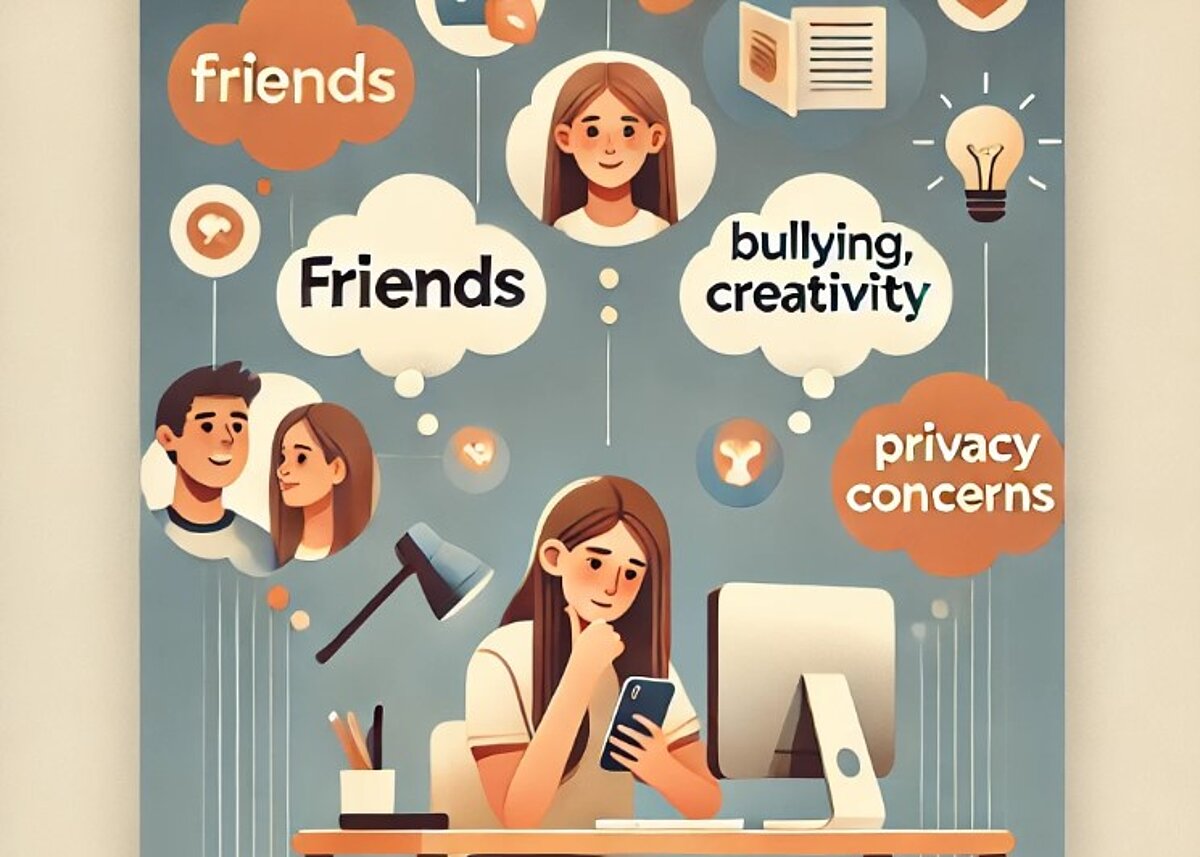Social media has become an integral part of modern society, shaping behaviors, influencing interpersonal relationships, and contributing to how information is shared and consumed. However, the increasing presence of young children and teenagers on these platforms has sparked a heated debate: should the minimum age for access be raised? Currently, most social media platforms set the minimum age at 13, a rule often ignored or easily bypassed. Let’s examine the pros and cons of this proposal, understanding the reasons behind those in favor and those against.
Reasons for "Yes": Why Raise the Minimum Age?
-
Protection of Psychosocial Development Social media can negatively affect the emotional and cognitive development of younger users. Early exposure to these platforms subjects children and teenagers to social pressures, cyberbullying, and inappropriate content. Raising the minimum age would allow young people to develop greater critical awareness before encountering these dynamics.
-
Reducing the Impact on Mental Health Studies show that excessive use of social media can increase anxiety, depression, and self-esteem issues, especially in younger individuals. Raising the age limit could reduce exposure to these negative effects, giving teenagers more time to build a solid and resilient personality.
-
Privacy Risk Prevention Children and teenagers often lack a full understanding of the risks associated with sharing personal data online. Increasing the age for access would ensure users are more mature and better educated about digital safety before entering the social media world.
-
Combating Disinformation The spread of fake news and manipulative content can easily influence young and impressionable minds. Delaying access would ensure users are better equipped to discern between authentic information and false content.
Reasons for "No": Why Not Increase the Minimum Age?
-
Digital Education from a Young Age Preventing access to social media might deprive young people of an opportunity to learn, in a controlled environment, the rules of the digital world. It is better to guide them toward conscious and responsible use rather than impose outright restrictions.
-
Challenges in Enforcing Age Restrictions Many children and teenagers access social media by lying about their age, often with parental consent. Raising the minimum age would not necessarily ensure compliance but could widen the gap between regulations and reality.
-
Social Impact Denying access might create a sense of social exclusion among young people, especially in a society where the virtual world is a significant part of daily life. Social media also serves as a tool for building relationships, sharing experiences, and developing identity.
-
Educational Potential Social media is not only a source of distraction or problematic content; it can also be a platform for learning, creativity, and social participation. Excluding younger users would mean denying them these opportunities.
Tools for Monitoring and Education
Regardless of the decision on the minimum age for access, a key point is how to monitor and guide social media use. Here are some proposals:
-
Identity Verification Implementing stricter identity verification systems, such as linking accounts to official identification documents or parental consent, could reduce unauthorized access by minors.
-
Parental Control Tools Social media platforms could offer integrated tools to allow parents to monitor their children’s activities, limit screen time, and block certain types of content.
-
Digital Education in Schools Introducing digital literacy programs into school curricula is essential to equip young people with the skills needed to navigate the digital world safely and responsibly.
-
Responsible Platform Design Social media could be designed with features specifically tailored to younger users, such as limiting targeted advertising, reducing exposure to sensitive content, and promoting educational material.
-
Awareness Campaigns Engaging parents, educators, and young users in campaigns to promote conscious and responsible social media use, highlighting the risks and opportunities of the digital world.
Conclusions
The issue of the minimum age for social media access is complex and requires a balance between protection and freedom. Raising the age limit could reduce risks to mental health and safety for young people, but it might also be perceived as an unnecessary restriction, difficult to enforce effectively. Rather than focusing solely on prohibitions, it would be more effective to invest in tools for education and monitoring that enable young people to approach social media in a safe and conscious manner. The key lies in education, rather than prohibition.
E-Business Consulting is a marketing agency active in the digital field since 2003. Call now for a free quote














